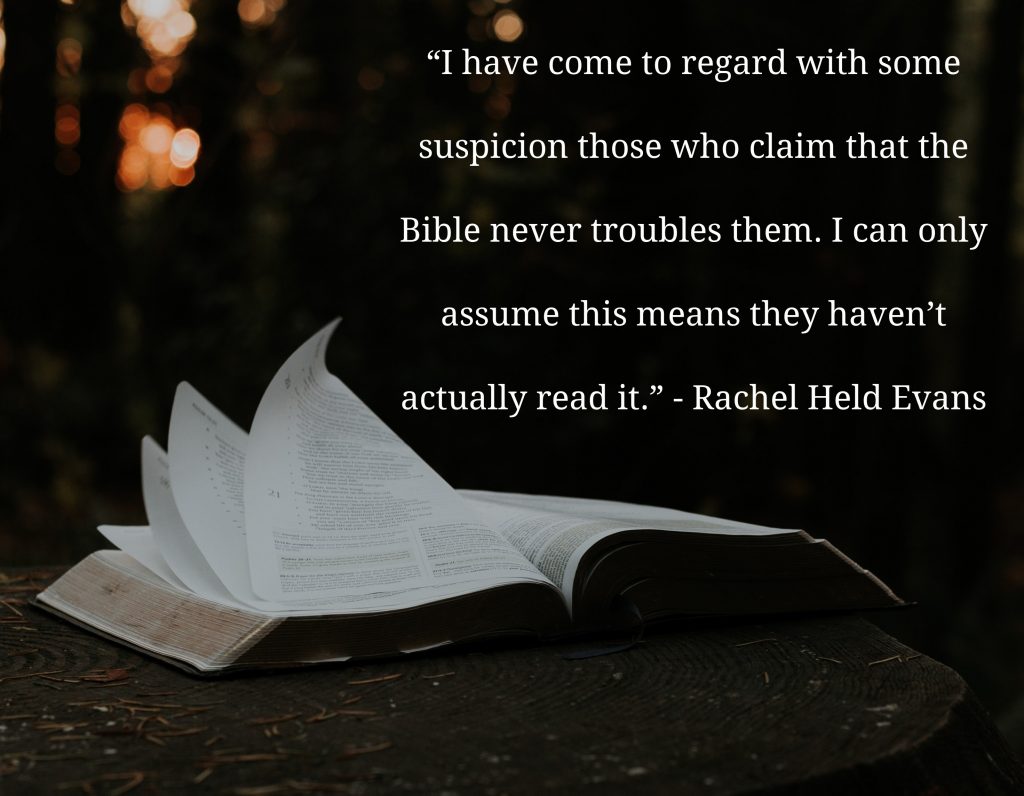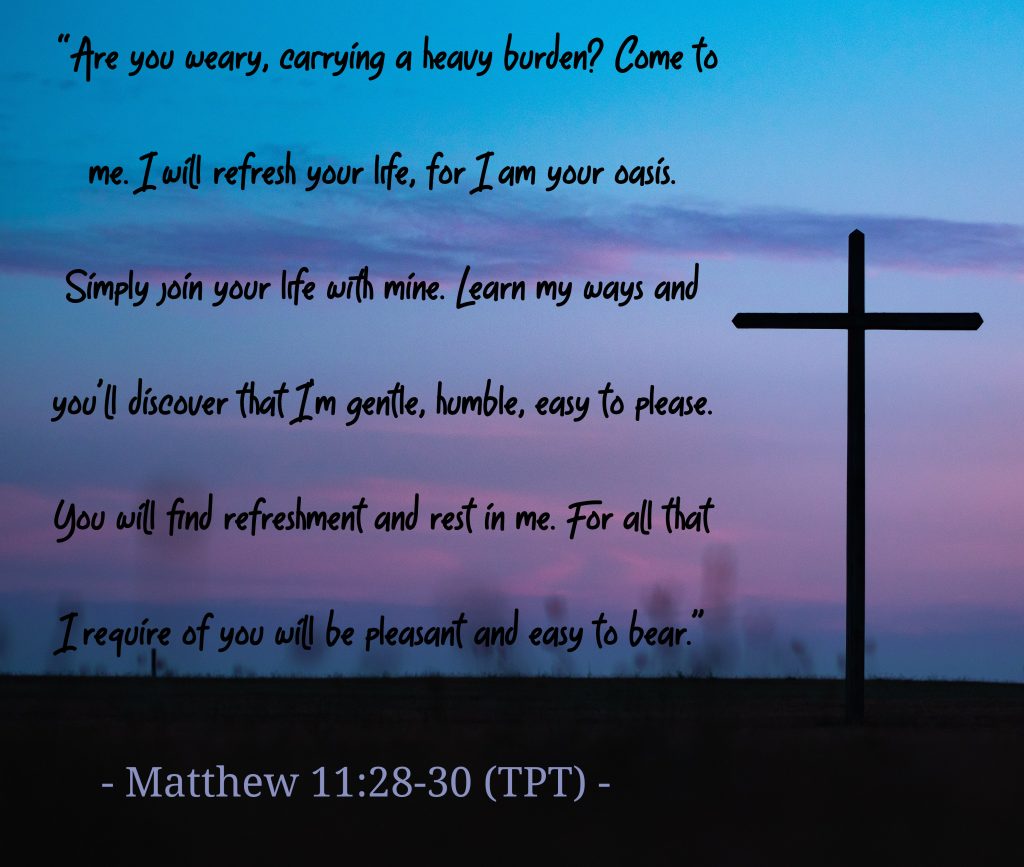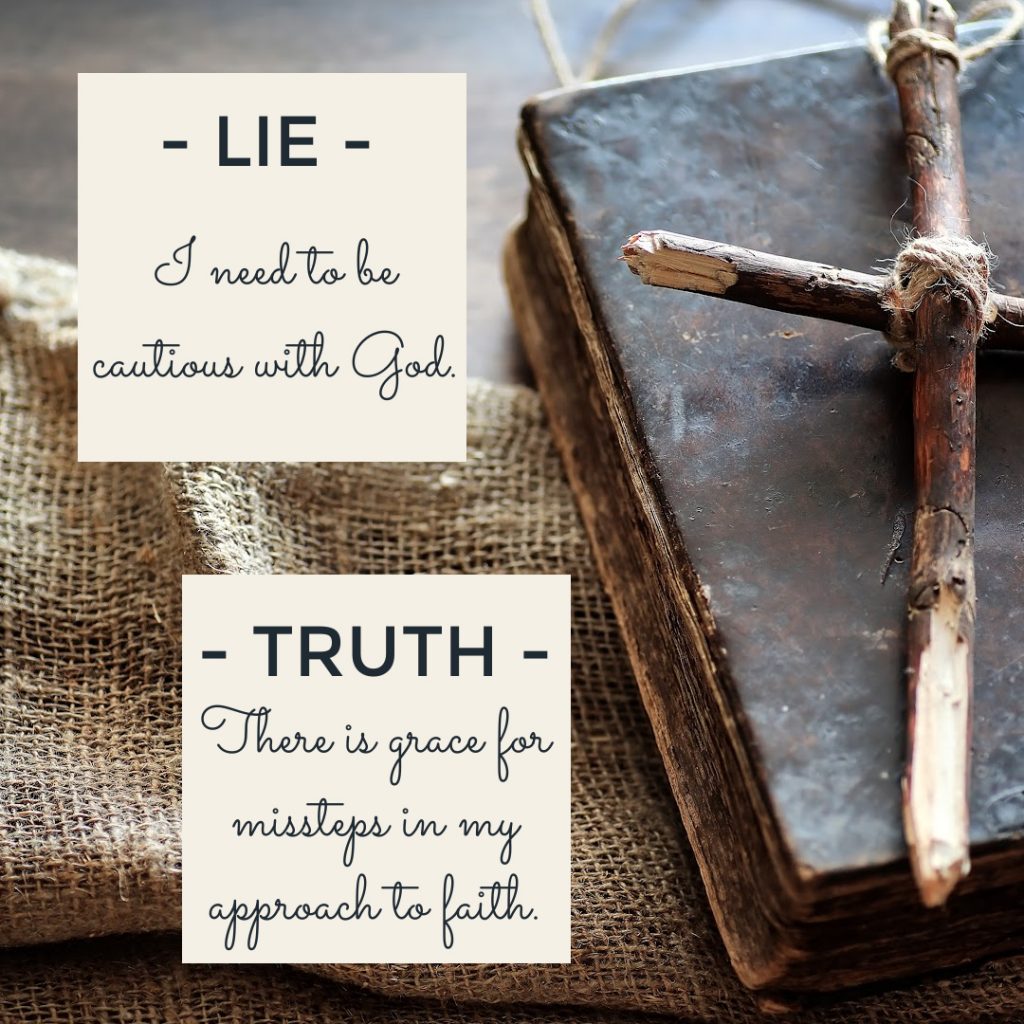When it comes to Christian testimonies, mine is about as vanilla as they come. I was raised in a Christian home by parents who shared the love of Jesus and the truths of Scripture with me from a very young age. Many of my earliest memories involve Sunday school, church potlucks, and family sing-alongs to “Jesus-y” songs. There was never a time in my life when I didn’t know Jesus and trust God’s goodness and sovereignty. I never had reason or cause to doubt the stories taught to me through flannel graph boards and New Testament coloring sheets. I don’t even know when I first “accepted Christ” because He has been my Lord and Savior for as long as I can remember.
While it doesn’t make for the most dramatic conversion narrative, I cherish the story of my personal walk with Jesus. In God’s Kingdom, every single testimony speaks to the goodness, mercy, and creative kindness of the Savior, who meets each one of us wherever and whenever and however He sees fit. I love hearing others’ testimonies of being rescued from lives of hopelessness and despair; personally, I’m happy to have traded a shocking come-to-Jesus moment for a lifetime with Him by my side. I might not have experienced that drastic miracle moment of being welcomed into God’s family, but my life is a testimony to many generations of miracles that led to my being raised by a mom and dad who passed their own inherited faith onto me.

Part of growing up “with Jesus” has been an ease and comfortability with prayer. In my youth I never doubted that God heard me when I prayed, that He was eager to hear and answer my requests, and that He acknowledged my prayers of repentance or welcomed my praise. Conversation with the Lord flowed easily, with no trepidation over presenting a faith-filled ask of Him to meet all of my needs (and nearly all of my wants). I was a child coming before my Heavenly Father with zero fears of my prayers being misinterpreted, or thoughts of whether or not my prayers were deserving of expression. My prayer life was rooted in grace and entirely non- transactional; I never felt I needed to earn God’s audience or response, and I had a hard time relating to people who were fearful or reluctant or doubtful when coming to God in prayer.
Another perk to having been raised in a Christian home and sprouting faith wings in the context of church is that in my formative years, I never had any true hangups with Scripture. I never questioned that every word of the Bible was true, or that it was the complete and irrefutable Word of God. I had no doubts that God could and would speak directly to me through Scripture. I completed my first Genesis-Revelation read through the Bible before starting High School, and while I didn’t fully understand all that I had read, I trusted that every word was relevant and true, that it spoke to the sovereignty of its author, and that it held relevance for my life.
My approaches to prayer and Bible reading shifted some as I matured in my faith: mostly, my own habits did not change, but I started to empathize with other Christians for whom praying and studying the Bible did not come so easily. Though I retained levels of comfort and trust in my personal prayer life, I began to understand why others might have difficulty conversing with God; I was able to see how some might wrestle with unanswered prayers, or why others may struggle to come before the throne of a God who had been misrepresented to them, or how questions regarding free will vs God’s agency over creation might interfere with a fruitful prayer life. Similarly, I began seeing how the Bible—with its intricate themes and seemingly contradictory messages and multiple interpretations—could pose stumbling blocks for other believers. My own understanding had not changed, but for the first time I was seeing how it could.

Fast forward to my mid-thirties, and the shifts intensified. I was no longer the naïve Christian who took every Bible verse at face value or who was quick to bring every possible want or desire before God in prayer. Jesus remained my closest friend, and such intimacy paved the way for a more complex and nuanced view of prayer and the Bible. I had grown to trust the character of God apart from my limited understanding of Him, and with this intensified faith came a willingness to accept I might not have as good a grasp on the mechanics of prayer or the complexity of the Bible as I’d once assumed. I had heard enough deconstruction stories to know that Christ alone could offer a solid foundation for my faith life—not the way I came to Him in prayer, not my limited understanding of Scripture, not my devotion to the spiritual disciplines, and especially not others’ ideas on what praying or Scripture reading should look like.
This was a positive development in my faith journey. But all worthwhile journeys are meandering ones, and this new trajectory of my faith walk led to some unintended corollaries. Because prayer was no longer quite as straightforward as it once had been, and the vitality of my prayer life no longer depended on God’s answers to my petitions, I found myself holding back from making requests—not because I didn’t believe God could respond, but because I didn’t want to obligate Him to do so. (As if the Creator of the Universe might feel obligated to do what I ask—insert eye-roll emoji here.) My prayers became dominated by utterances of praise and gratitude, with only the occasional request sprinkled in.
Something similar happened in my reading of Scripture. Countless books and podcasts and sermons relating to apologetics and Scriptural analysis had shown me that understanding the Bible involves more than opening to a verse and doing what it says; issues such as cultural context, intended audience, genre, and authorship were just a few of the factors to take into consideration. My awe and respect of Scripture increased, but I grew cautious in my reading, doubting my own interpretations and the ability of the Holy Spirit to speak directly to my heart through God’s Word.
These shifts in my praying and Bible reading were subtle. . . so subtle that I wasn’t entirely aware of them until this past year. But my quest to root out deep-seated mistruths within my spiritual life opened the door for God to speak to me about how and where I had gotten off track. In His loving kindness, He has been revealing how I have grown unnecessarily circumspect with Him.

Though well-intended, this cautiousness has become a stumbling block to intimate relationship with the Lord. In setting parameters around what I can or should bring to God in prayer, I’ve limited our fruitful discourse. By avoiding prayerful petition, I’ve obstructed opportunities for God to bless me through answered prayers (or invite me into deeper trust in Him when prayers do not go answered).
Similarly, my guarded approach to reading the Bible was hindering my receptiveness to the Holy Spirit’s guidance in interpreting ancient words for me today. I don’t need to have the mechanics of the Bible figured out for it to be relevant. Not every word in Scripture will apply to my own life right now, but that does not mean that none of it will apply: God being God, He can use the most obscure verses taken out of context to reveal messages to me today. But this requires an open heart and a willing mind—something I was not bringing with me in my tiptoeing through God’s Word as I sought to shield my faith from potentially damaging misinterpretations or uncomfortable truths.
Like all lies, the ones I was believing about prayer and the Bible held seeds of truth: prayer isn’t as straightforward as I once assumed. The Bible is complex and not always easy to understand or apply. But this is not the whole truth. The whole truth is that God is so much bigger than my own faith missteps. He offers grace for my stumbling, holding my hand and gently guiding me back to the pathway of righteousness and right understanding when I’ve gone astray. A fear of somehow letting God down should lead me towards God and not away from Him as I seek His guidance in knowing how to pray and how to hear Him through His Word.
The enemy of my soul would like nothing more than to use my own “faith insecurities” to hinder a flourishing relationship with God, but I see the enemy’s tactics, and I refuse to play along. I might get prayer wrong, but that is not reason to stop praying. I may very well misinterpret Scripture, but I will not stop reading and seeking meaning for my life. Every mistake and misstep is yet another opportunity for God to come along beside me and redirect my efforts.
The Westminster Shorter Catechism states that “Man’s chief end is to glorify God, and to enjoy him forever.” We were created for relationship with God; our great business here is to glorify Him by enjoying Him! It’s difficult to enjoy time with God when I’m taking precautions with God’s ego or am fearful of misconstruing His words to me. The Lord wants me to come to Him freely and with an open heart—with deference and respect, of course, but not with any reservations or fears. I do not need to be cautious with God! He is holy, but also merciful, a kind and faithful shepherd who beckons me, in all my fumbling and misguidedness, to come.
